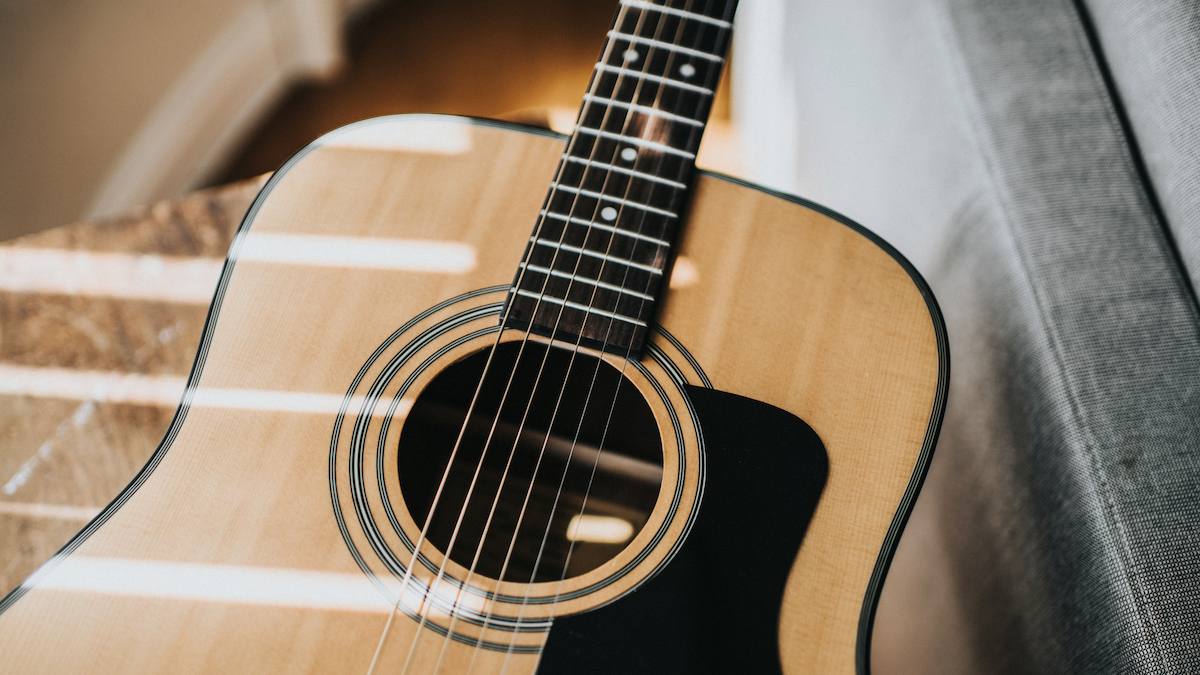Coated vs uncoated guitar strings: What’s the difference?
Unsure whether coated or uncoated strings are right for you and your guitar? We unpick the difference in sound, feel, tuning, price and more

Want all the hottest music and gear news, reviews, deals, features and more, direct to your inbox? Sign up here.
You are now subscribed
Your newsletter sign-up was successful
When it comes to guitar strings, one of the common questions that crops up is, ‘What is the difference between coated and uncoated guitar strings?’. Coated strings cost more, but where does that money go, and what do they offer over and above uncoated strings?
Something like this is subjective - what’s right for one player isn’t necessarily right for the other, but here we’ll look at the key differences between coated and uncoated strings in an objective manner, and try and help figure out which one might be right for you, whether you’re in the market for electric guitar strings or acoustic guitar strings.
What are coated strings?
Firstly, let’s look at what coated strings are. In a nutshell, they have a very thin polymer coating around either the core, the wrap or the whole string which acts as a barrier to the acidic dirt, sweat and grime that comes from our fingers when playing. They’re available from a number of different brands including D’Addario, Ernie Ball, Elixir and loads more and have proven popular with a wide range of amateur and pro players alike.
How do they sound?
Coated strings are primarily designed to give you longer use out of them. The idea is that the treatment gives you the sound of new strings for a greater length of time. That means more top-end and more resonance and sustain.
As you play, dead skin, dust and dirt find their way into the windings of your uncoated strings which gradually stops them from being able to vibrate as freely. Even environmental factors like humidity can contribute to string corrosion. Coated strings reduce this, so you’ll have strings that vibrate properly for longer, giving you increased resonance, harmonics and overtones. The top-end frequencies are usually the first thing to go as strings age, so coated strings keep that intact for longer, giving you a more balanced sound.
However, some find that when directly compared with a fresh set of uncoated strings, coated sets actually have less top end, and don’t quite sound as complex, or as loud. However, since they take longer to corrode, in the long run they do sound better for longer.
Of course, it’s worth mentioning that not everyone wants that fresh string sound. Some guitars are naturally very bright sounding and new strings will enhance that. I personally love my Strat after the (uncoated) strings have been broken in a little, after about a week or so.
Want all the hottest music and gear news, reviews, deals, features and more, direct to your inbox? Sign up here.
Certain styles of music can sound great with more worn-in strings too - some fingerstyle acoustic guitar players find that they get a warmer, more intimate sound with uncoated strings; fewer overtones ringing out can help separate frequency bands too, giving a more distinct bassline or melody line.
It’s also fair to say that soul and Motown wouldn’t quite be the same if it weren’t for the sound of dead strings on a Precision bass guitar. Not holding on to that fresh string sound on a bass can add some low-end thump to a mix, and mean that you’re not interfering with other instruments’ frequency bands.
Do coated strings impact tuning?

Tuning issues can also start to arise with old strings. Again, coated strings help combat this, with many players claiming that their guitar holds its tuning for longer with coated strings.
The same can be said for intonation, too - you’re likely going to have notes that ring in tune all over the neck for longer with coated strings.
Do coated strings reduce string noise?
With coated strings you’ll usually get less string noise; that is, the noise you hear when you move your fingers across strings, but you’re not fretting - like when you’re changing chords.
For some players, this is great, particularly when recording. For others, those incidental noises are a part of their sound - string noise can add character and a more human touch to your music, but it really is subjective.
What’s the difference in feel?
The main drawback for most players when it comes to coated strings is the feel. Some, if not most, coated strings have a certain feel to them - they tend to be a little smoother than non-coated strings, and the ridges that you feel between the windings are less noticeable.
Some guitarists describe them as feeling slippery, which can lead to inaccuracies when playing, and they instead prefer the more natural feel of uncoated strings. Of course, people are used to the feel of uncoated strings - it’s what has been used for years and years, and it’s what most of us know. Any deviation from that can be unwelcome.
Again, it’s worth noting that all of this is so subjective - there are plenty out there that like the feel of coated strings. There are also certain coated strings out there that aim to provide a more natural feel, like the D’addario XTs.
Do coated strings cost more?

As you might expect, strings that you don’t need to buy as often do cost more. Coated strings can set you back double what you’d pay for non-coated strings. With that though, you get the sound associated with new strings for longer, so, not only do you have to buy them less frequently, but you don’t have the task of restringing your instrument as often either. For those that see restringing as a chore, coated strings are definitely something to consider.
Conclusion
Ultimately, it really is a matter of preference. Coated strings aren’t better than non-coated strings, per se, but they do offer a number of benefits that players like. For many guitarists, their instruments sound the best when they’ve just been restrung, and coated strings help prolong that. All the tonal characteristics associated with new strings stick around for a longer period of time, meaning that players get more enjoyment from them.
Their barrier to dirt, sweat and grime also prevents them from corroding as quickly, so they don’t rust or degrade as fast - handy for those that sweat a lot when playing. If you’re a touring musician and you’re playing night after night, coated strings could save you time and money whilst out on the road.
For most coated strings, there is a slightly different feel, which might bother you - it might not. They’re a little smoother, so some find them a bit slippery. If you haven’t tried them before, it’s worth giving them a go to find out for yourself. Things like reduced string noise and improved intonation might just be worth it.
For what it’s worth, I use coated strings on most of my guitars, but not all of them. Acoustics get the coated treatment, and I’m happy with any brand, really. I use non-coated strings on my naturally bright-sounding electric guitars, and coated on the others, though I opt for some of the more natural-feeling ones.
After spending a decade in music retail, Richard is now a freelance writer for MusicRadar, Guitar Player, Guitar World and Reverb, specialising in electric and acoustic guitars, bass, and almost anything else you can make a tune with. When his head’s not buried in the best of modern and vintage gear, Richard runs a small company helping musicians with songwriting, production and performance, and plays bass in an alt-rock band. Otherwise, you'll probably find him out walking the dog!
